So what is the Rab Mountain Marathon, what do you need to know and why should you do a mountain marathon?
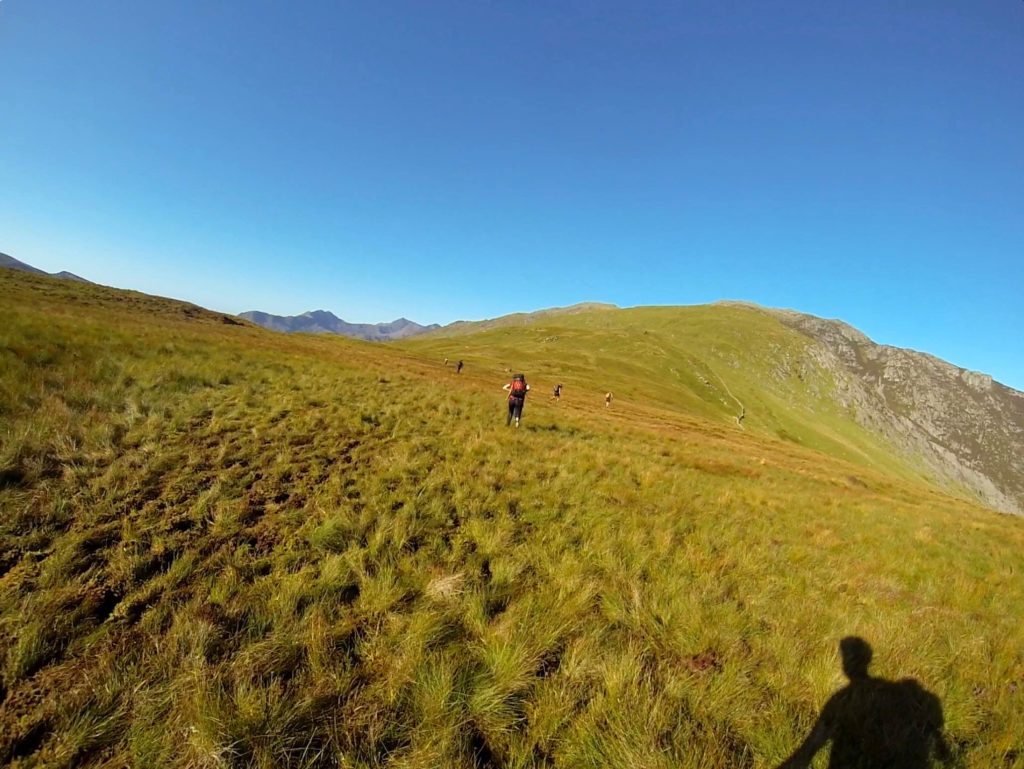
And off we go, straight through the first bog of the day.
The RMM is an orienteering, fell running event in the mountains somewhere in the UK (the location changes every year). It runs over 2 days, and participants have to carry a tent, sleeping bag, a stove, sufficient food for 2 days and some other compulsory kit items. The idea is that you’re more or less self-sufficient in the mountains. After your time starts on the first day, you’re given a map with all the checkpoints (they’re usually in the middle of nowhere, not next to paths). Depending on how difficult to reach or find the checkpoints are, they give more or less points. The aim is to collect as many points as possible in the given time limit (you can sign up for a long or a short score version)*. If you’re late, you lose points again, so good knowledge of one’s abilities and solid navigational skills are essential for a decent score.
So what happened last year?
I only realised how hungry I was once we had crossed the finish line of day one. Navigating keeps you busy. What an awesome day. Hard work, but awesome! The Rab Mountain Marathon 2015 was our first ever event of this kind and we didn’t really know what to expect, how we’d get on, how hard it’d be. Just after the start we were given a map of the area with all the checkpoints marked. We spent a couple of minutes planning the route for the day before we set off. We were extremely lucky with the weather and made our way up and around the Glyderau in perfect sunshine. The terrain was tough and very varied. One minute we’d be navigating a bog, the next minute we found ourselves contouring on ankle breaking terrain, stumbling over rocks and through heather.
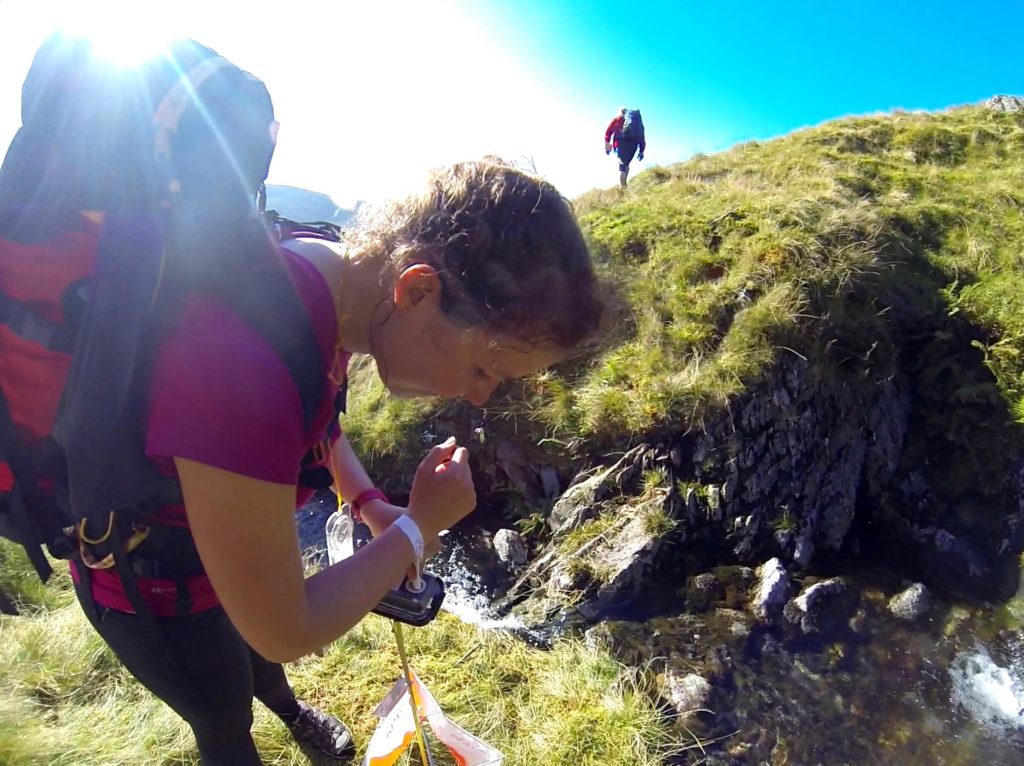
One of the earlier checkpoints on day one.
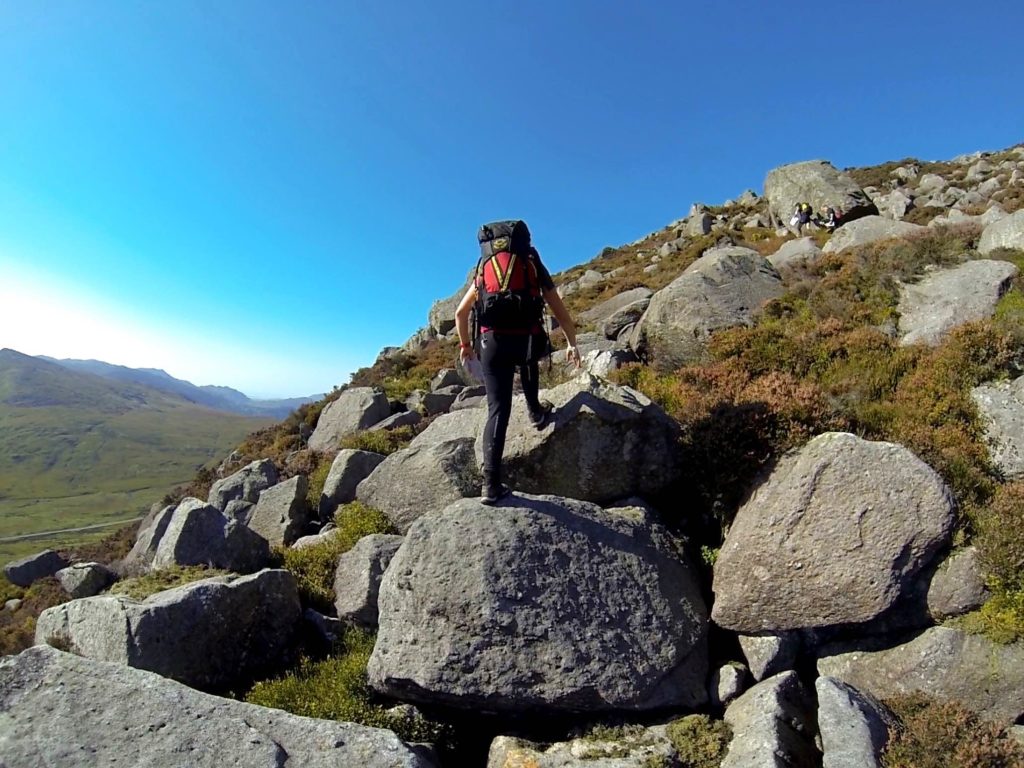
One of the rockier sections on our route.
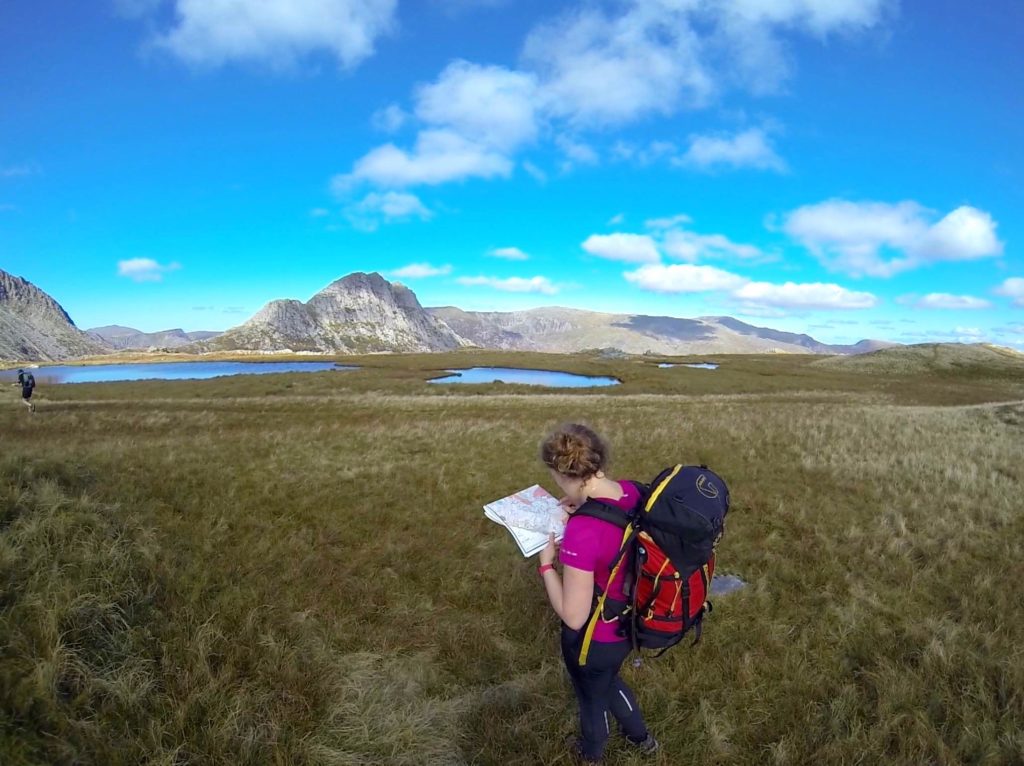
Right, so where to go next…?
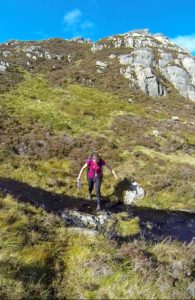
River crossings. Exciting times.
Reaching our first checkpoint of the day was exciting and provided us with an important benchmark of our capabilities. We quickly reassessed our planned route for the day before we continued. The favourable weather conditions definitely made the navigation side of the event a lot easier. Luckily, due to the staggered start times, only very few of the checkpoints were busy, so that the challenge of finding the checkpoints remained. Towards the end of the day we had to speed things up a little in order to make it to the finish line in time. We decided to not collect any more points and follow the quickest route along a small road to the finish line and overnight camp to secure our points. We made it back with just under 15 minutes to spare.
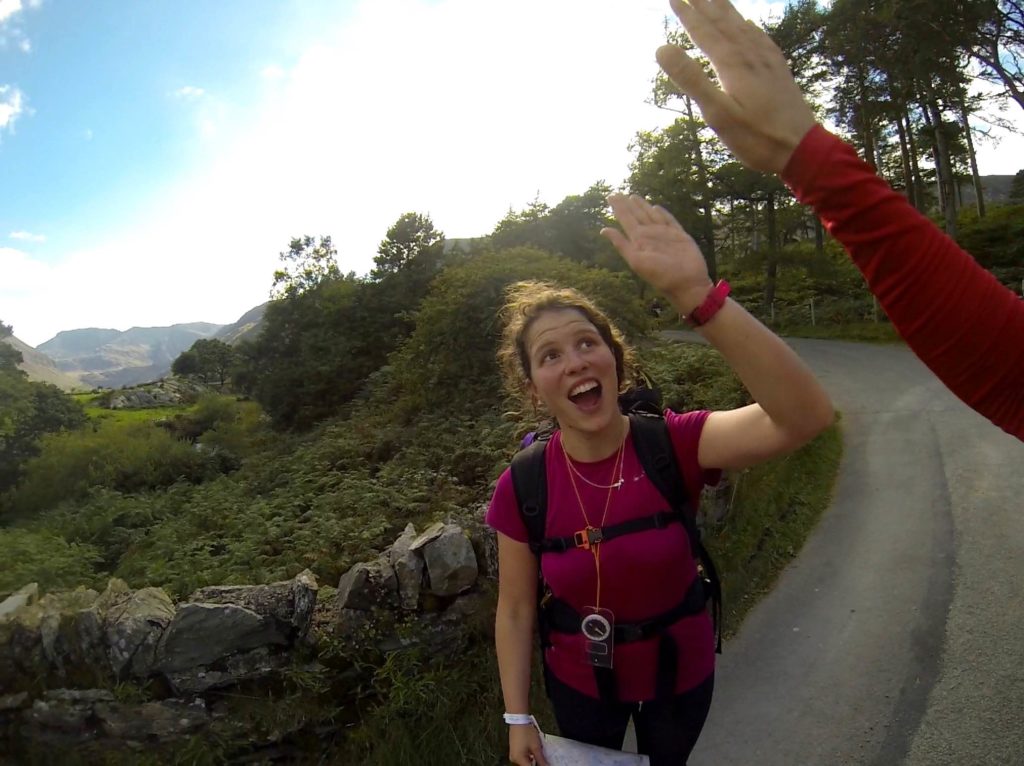
Boom! First day done.
We spent the evening mingling with other competitors and brooding over the event map, wondering what the second day would bring.
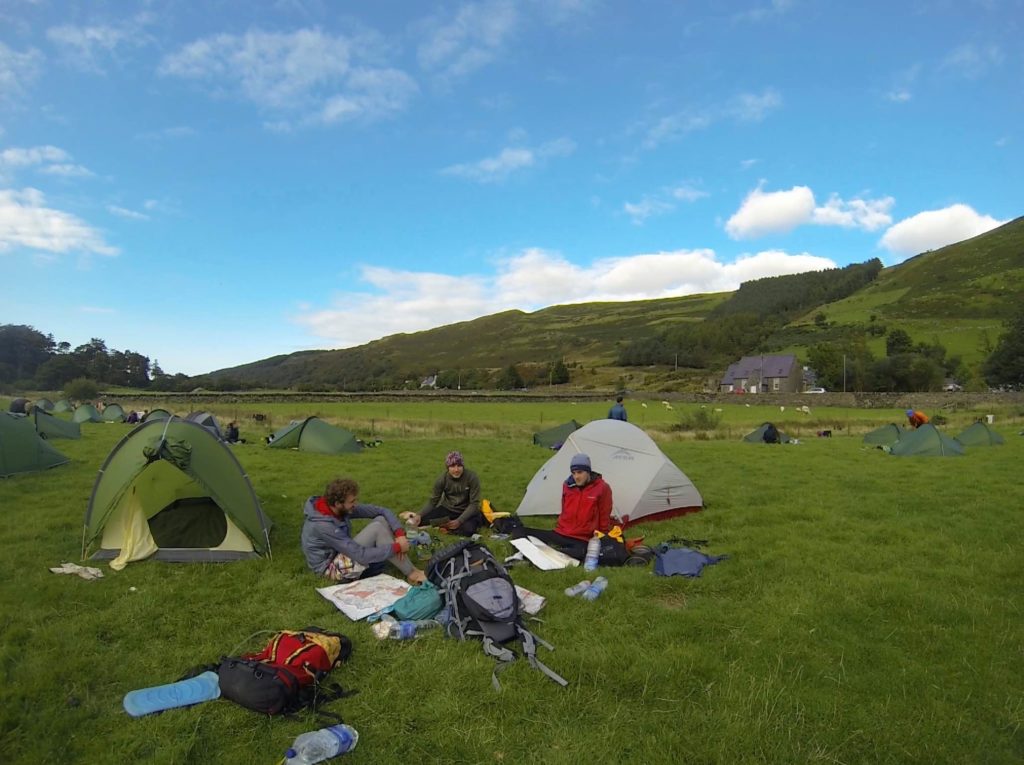
The overnight camp.
On day two we decided to collect a lot of points in the first few hours as there were a few checkpoints bunched up relatively close to the overnight camp and then leg it towards the finish once again.
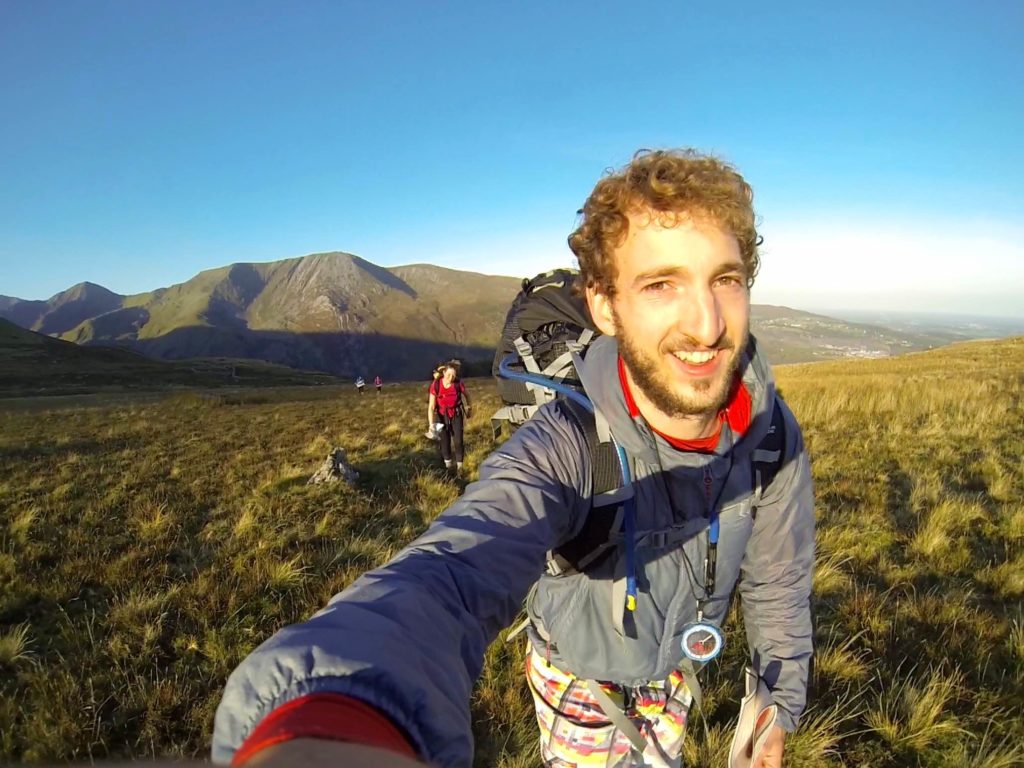
Early on the second day. What a glorious morning!
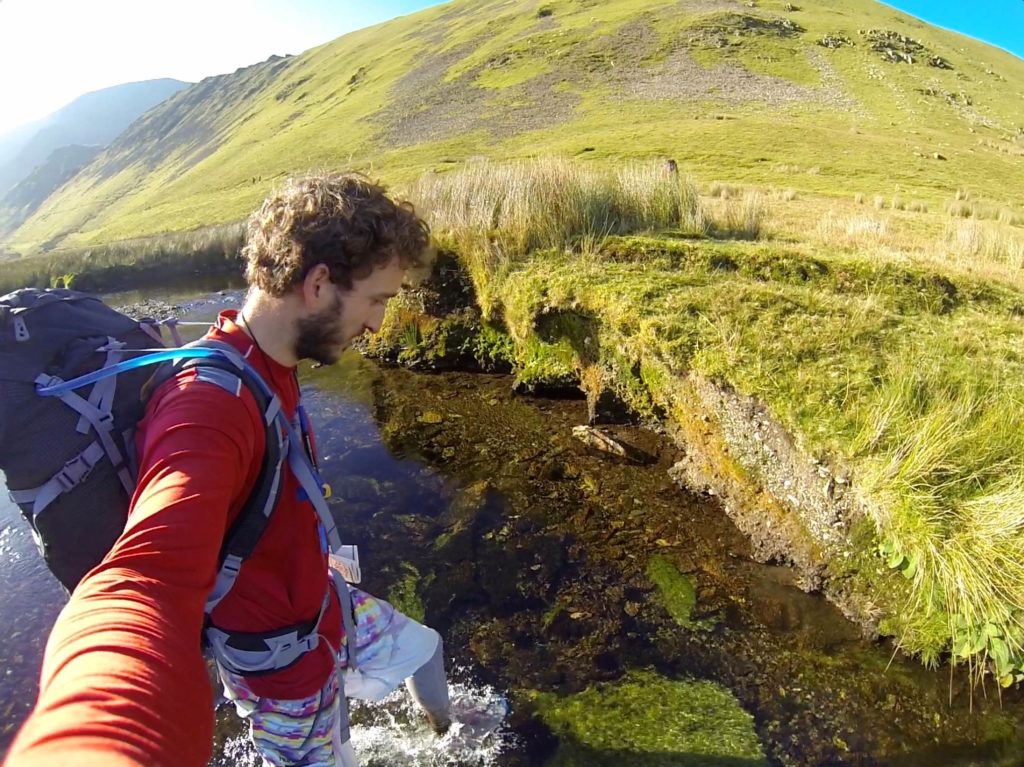
Another day, another river crossing.
The last checkpoint we had planned to reach turned out to be very difficult to find, hidden away in high heather on a really steep slope. We were just about to give up on it when we finally spotted it. After collecting those valuable points we headed straight towards the finish line. The last couple of kilometres we had to give it everything we had in order not to loose any of our hard-earned points. We made it back with only minutes to spare.
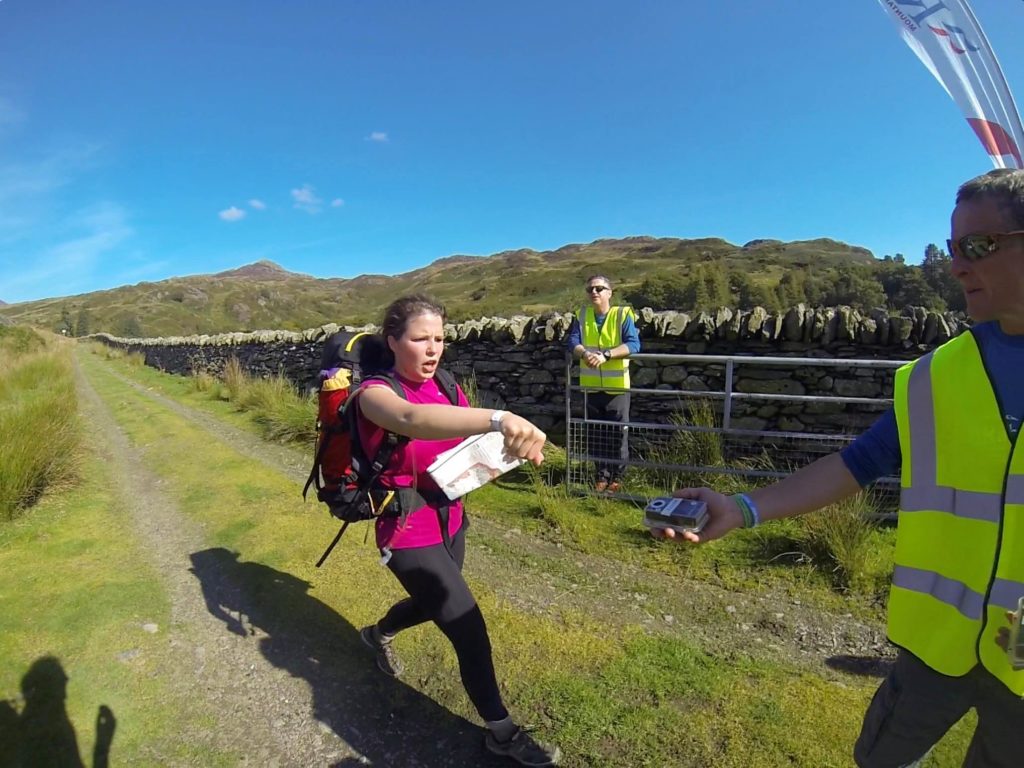
When you really don’t want to loose any of those hard earned points…
Everything you need to know:
General tips:
- Read the compulsory kit list carefully and well in advance of the event. They are quite particular about some of the items.
- Pack as light as possible within the restraints of the compulsory kit list and the kit you own. If you always thought about investing in some lighter kit, now is the time.
- Yes, it’s a race. But it’s also just an awesome event so don’t get too competitive and don’t forget to enjoy the days out in the mountains.
- There’s loads of information on the RMM website with plenty of good tips.
Things we did last year that worked well:
- Take some extra time at the start to write down the points for each checkpoint and cross out inactive ones – this saves time later.
- Take two different colour pens to mark things on the two different days (swap with your partner if you’re racing as a team).
- Take a minute or two to plan a rough route (you’ll almost certainly have to make some changes to this later) for the day – this’ll save a lot of time at each checkpoint as you’ll already know where you want to head next.
Things we didn’t do that we’ll be doing this year:
- Bring plastic bags for our feet to walk around camp in the evening
- It’s probably worth descending and/or ascending a bit out of your way and then run along a path rather than contour along difficult terrain – saves energy and ankles!
- Bring two tents if you have: one for the first night before the start, and another one (dry (saves weight) and pre-packed in your race bag) for the actual event.
Things that were awesome about the event:
- Pretty much everything: people, organisation, volunteers, atmosphere, the other participants, …
Things we’d change about the event:
- Maybe not allow altimeters either. Knowing the altitude definitely makes finding some of the checkpoints a lot easier. Banning altimeters (in addition to GPS devices)** would level the playing field between people with all the kit and newbies even more.
How fit/competent do I have to be to sign up?
- Fitness: Because you plan your own route you can make the event as hard or easy as you want to (limited by the minimum distance between start and finish). Decent mountain fitness is definitely beneficial, but you definitely don’t need to be an ultramarathoner to enjoy this event.
- Competence: Some of the checkpoints are pretty hidden away in reentrants etc. and especially if the weather is bad very good navigational skills are necessary to collect a decent amount of points. This year there’s a new class that allows GPS devices, so this might be an option if you don’t feel quite confident enough with just map and compass.
*There’s other new formats available this year too.
**This year there is a class that allows GPS devices.
